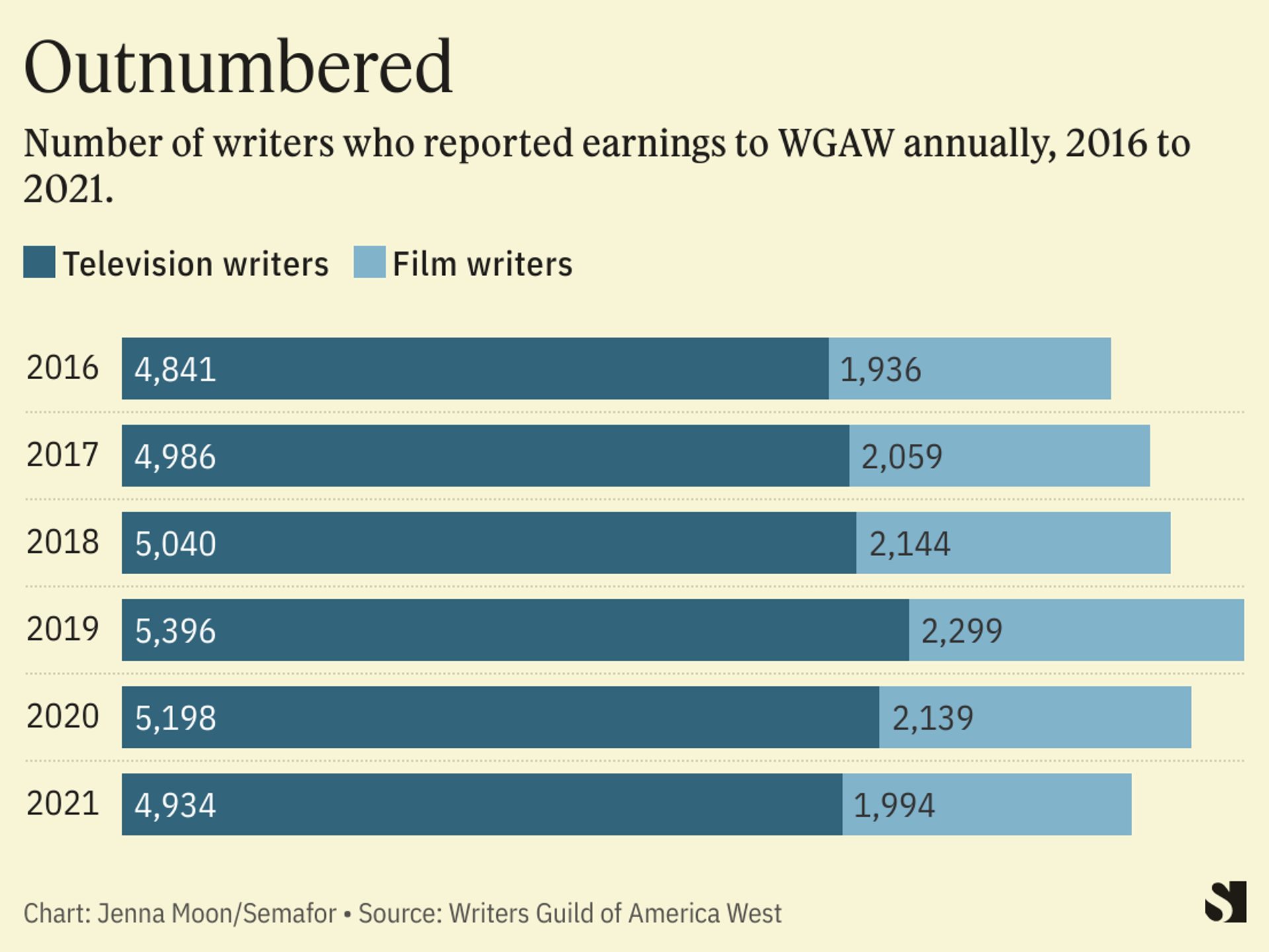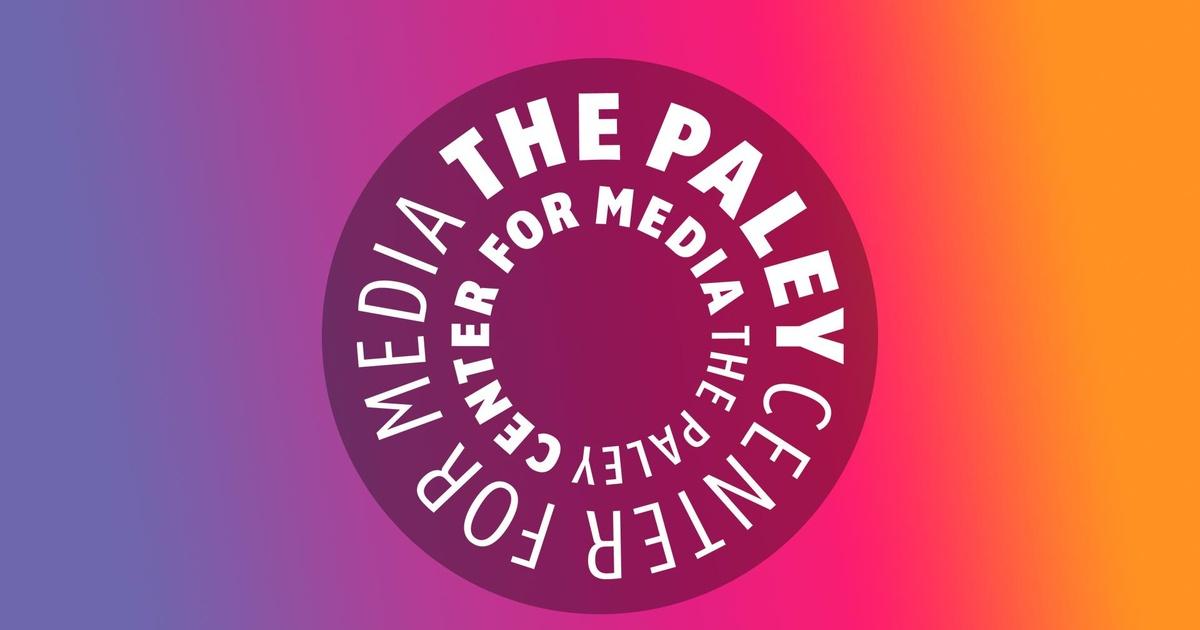The Hollywood Strike: Understanding The Actors' And Writers' Demands

Table of Contents
The Hollywood strike, involving both the Writers Guild of America (WGA) and the Screen Actors Guild - American Federation of Television and Radio Artists (SAG-AFTRA), is one of the biggest disruptions to the entertainment industry in decades. This unprecedented shutdown stems from a series of critical demands from both writers and actors regarding fair compensation, working conditions, and the impact of new technologies like AI. This article delves into the core issues fueling this major Hollywood strike, exploring the specific demands of the WGA and SAG-AFTRA and their implications for the future of filmmaking and television.
<h2>The Writers' Strike: Key Demands of the WGA</h2>
The Writers Guild of America (WGA) strike represents a significant turning point in the relationship between writers and the major studios. Their demands are multifaceted, focusing on fair compensation in the streaming era, improved working conditions, and the regulation of AI in writing.
<h3>Fair Compensation and Residuals in the Streaming Era</h3>
Traditional residuals models, heavily reliant on syndication and DVD sales, have been decimated by the rise of streaming services. The shift to streaming platforms like Netflix, Disney+, and Hulu has drastically altered the revenue streams for writers, leading to significantly reduced compensation. The WGA argues that the current system doesn't adequately reflect the success of their shows on these platforms. Their demands include:
- Lack of transparency in streaming revenue calculations: The WGA seeks greater transparency into how streaming platforms calculate and distribute revenue.
- Increased minimums for streaming projects: The union demands higher minimum payments for writers working on streaming projects to account for the increased reach and potential profitability.
- A more equitable profit-sharing model: The WGA calls for a fairer system that ensures writers receive a larger share of the profits generated by their successful shows on streaming platforms. This includes exploring models that better reflect the long-term value of their work.
<h3>Minimum Staffing Levels and Working Conditions</h3>
Beyond compensation, the WGA is addressing issues of exploitation and demanding improved working conditions for writers. Overly long hours, inadequate staffing levels, and unrealistic deadlines are major concerns. The WGA's proposals aim to:
- Establish minimum staffing levels on productions: This ensures adequate support for writers and prevents overworking individual writers.
- Guarantee adequate time for quality work: The WGA seeks to create more realistic deadlines, allowing writers sufficient time to craft high-quality scripts.
- Improve healthcare benefits: Access to affordable and comprehensive healthcare is a key priority for the WGA.
<h3>The Impact of AI on Writing</h3>
The WGA's concerns extend to the burgeoning field of artificial intelligence and its potential impact on writers' livelihoods. The union is deeply worried about AI replacing human writers and demands safeguards to protect their members' interests. Specific concerns include:
- Regulation on the use of AI in scriptwriting: The WGA seeks regulations to prevent the unauthorized use of AI to generate scripts, potentially displacing human writers.
- Guaranteeing writers' rights in the context of AI-assisted content creation: The union advocates for clear guidelines ensuring writers' rights when AI is used as a writing tool.
- Prohibiting the use of AI to replace writers: The WGA's ultimate goal is to prevent AI from entirely replacing human writers in the creative process.
<h2>The Actors' Strike: Key Demands of SAG-AFTRA</h2>
The Screen Actors Guild - American Federation of Television and Radio Artists (SAG-AFTRA) joined the strike, echoing many of the WGA's concerns while adding their own unique demands related to actors' working conditions and the use of AI in creating digital likenesses.
<h3>Fair Wages and Residuals in the Streaming Era</h3>
Similar to the WGA, SAG-AFTRA is facing drastically reduced compensation due to the shift to streaming. Actors often receive minimal or no residuals from streaming services, despite the immense popularity and reach of their projects. The union's demands include:
- Increased minimum pay for streaming projects: A substantial increase in base pay is crucial to compensate actors fairly for their work on streaming platforms.
- Fairer distribution of residuals based on viewership data: The union advocates for a more equitable system that directly links residuals to the actual viewership of a project.
- Transparent accounting practices: SAG-AFTRA demands increased transparency in the accounting practices of streaming services to ensure accurate and fair distribution of revenue.
<h3>Self-Tape Auditions and Working Conditions</h3>
The rise of self-tape auditions has presented new challenges for actors. While reducing costs for studios, this practice often places additional burdens on actors without adequate compensation. SAG-AFTRA's demands aim to:
- Regulate the number of self-tapes actors are required to submit: Limiting the number of unpaid self-tapes will reduce the strain on actors.
- Guarantee payment for self-tapes: The union seeks to ensure fair compensation for the time and resources actors invest in creating self-tapes.
- Improve working conditions for on-set actors: The union seeks improved safety and health standards, reasonable working hours, and fair treatment for actors on set.
<h3>The Use of AI and Digital Likenesses</h3>
SAG-AFTRA is also concerned about the potential misuse of actors' digital likenesses and the use of AI to create deepfakes or impersonations without consent. They demand:
- Regulations on the use of AI to generate actors' likenesses: The union seeks to prevent the unauthorized use of an actor’s likeness for AI projects.
- Demands for informed consent before using an actor's likeness for AI projects: Actors must give their explicit permission before their likeness is used in AI-generated content.
- Compensation for the use of AI-generated likenesses: SAG-AFTRA demands fair compensation for the use of actors' digital likenesses in AI projects.
<h2>Conclusion</h2>
The Hollywood strike represents a pivotal moment for the entertainment industry, driven by the urgent need for fairer compensation, improved working conditions, and protections against the disruptive forces of new technologies, especially AI. The WGA and SAG-AFTRA's demands underscore the need for a more equitable distribution of revenue in the streaming era and safeguards against the potential exploitation of writers and actors. Understanding the nuances of the Hollywood strike, including the actors’ and writers’ specific demands, is crucial for navigating this significant turning point in the industry. Stay informed about the ongoing Hollywood strike and its potential impact on the future of film and television. Let's work together to ensure a fairer future for those who create the entertainment we love. Support the writers and actors fighting for fair wages and working conditions in the ongoing Hollywood strike.

Featured Posts
-
 Middle Managers The Unsung Heroes Of Business Growth
May 20, 2025
Middle Managers The Unsung Heroes Of Business Growth
May 20, 2025 -
 Femicide A Deep Dive Into The Problem And Its Growing Prevalence
May 20, 2025
Femicide A Deep Dive Into The Problem And Its Growing Prevalence
May 20, 2025 -
 Analyzing The Us Typhon Missile Systems Role In Philippine China Relations
May 20, 2025
Analyzing The Us Typhon Missile Systems Role In Philippine China Relations
May 20, 2025 -
 Leclercs Ferrari Future Statement Ahead Of Imola
May 20, 2025
Leclercs Ferrari Future Statement Ahead Of Imola
May 20, 2025 -
 Fenerbahce De Yeni Bir Doenem Dusan Tadic In Tarihi Transferi
May 20, 2025
Fenerbahce De Yeni Bir Doenem Dusan Tadic In Tarihi Transferi
May 20, 2025
Latest Posts
-
 Fate Of Abc News Show Uncertain Following Mass Layoffs
May 20, 2025
Fate Of Abc News Show Uncertain Following Mass Layoffs
May 20, 2025 -
 Paley Centers Tribute To Gmas 50th Anniversary Milestone
May 20, 2025
Paley Centers Tribute To Gmas 50th Anniversary Milestone
May 20, 2025 -
 The Paley Center Recognizes Gmas 50 Years Of Broadcasting
May 20, 2025
The Paley Center Recognizes Gmas 50 Years Of Broadcasting
May 20, 2025 -
 Gmas 50th Anniversary A Celebration At The Paley Center
May 20, 2025
Gmas 50th Anniversary A Celebration At The Paley Center
May 20, 2025 -
 Actor Ramon Rodriguez Will Trent Recounts Unexpected Scorpion Encounters
May 20, 2025
Actor Ramon Rodriguez Will Trent Recounts Unexpected Scorpion Encounters
May 20, 2025
